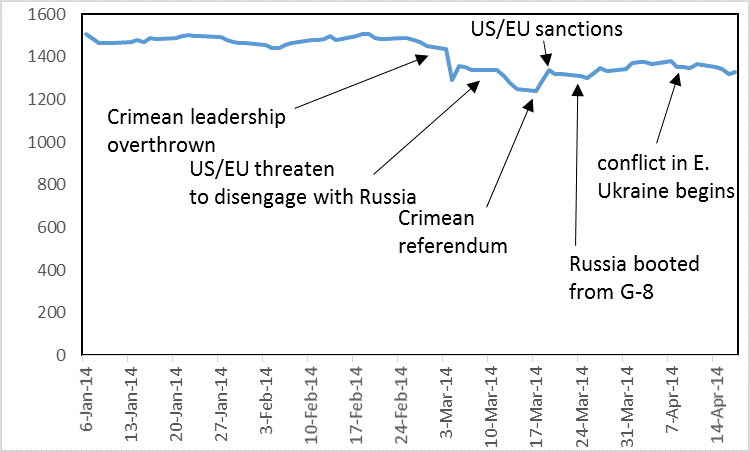 This year is the 105th anniversary of the publication of Norman Angell’s The Great Illusion, which argued that states act against their self-interest by going to war. While its timing was poor (the book was published in 1909), the argument is actually ingenious: Angell argues that if Germany conquered England, it would simply deprive itself of a debtor and trading partner, while obtaining in return only some minerals, the Elgin marbles and a few other treasures, and an unhappy population. Germany would do far better for itself by instead continuing to trade with England.
This year is the 105th anniversary of the publication of Norman Angell’s The Great Illusion, which argued that states act against their self-interest by going to war. While its timing was poor (the book was published in 1909), the argument is actually ingenious: Angell argues that if Germany conquered England, it would simply deprive itself of a debtor and trading partner, while obtaining in return only some minerals, the Elgin marbles and a few other treasures, and an unhappy population. Germany would do far better for itself by instead continuing to trade with England.
People are now making exactly the same argument about Russia. Because the economy of Russia depends on an export market for its oil and on foreign investment, and a few slivers of Ukraine will most likely be a burden rather than a benefit, Russia’s self-interest should direct it to leash the dogs of war. But the graph above suggests that there is less at stake for the Russian economy than might first appear.